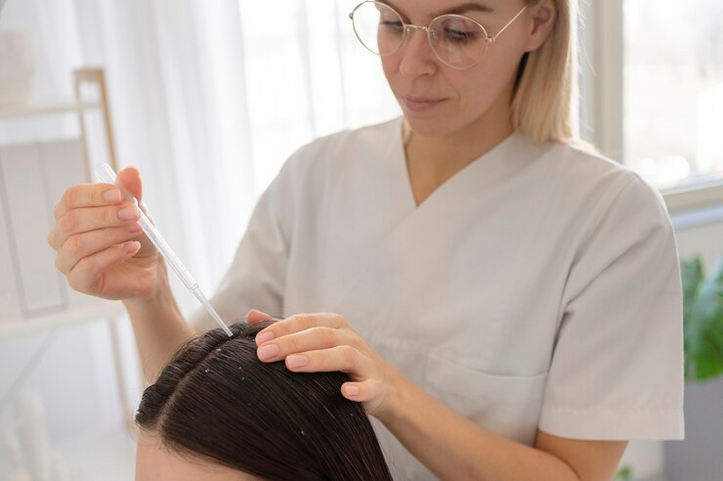In the realm of beauty and self-esteem, a woman's hair is often considered her crowning glory. Unfortunately, the journey for many women includes the daunting challenge of dealing with hair loss. Whether due to genetic predisposition, hormonal changes, or other factors, the emotional impact of losing one's hair can be profound. The good news is that various treatment options are available to address women's hair loss, allowing individuals to regain confidence and restore their crowning glory.
Understanding the Causes:
Before delving into treatment options, it's crucial to understand the diverse causes of women's hair loss. Hormonal changes, particularly during pregnancy and menopause, can contribute to temporary hair shedding. Additionally, genetics, certain medical conditions, and stress are common culprits. Identifying the underlying cause is essential for selecting the most effective treatment.
Topical Treatments:
One of the most common and accessible treatments for women's hair loss comes in the form of topical solutions. Over-the-counter minoxidil is an FDA-approved medication that promotes hair growth and prevents further loss. Applied directly to the scalp, minoxidil is a convenient and non-invasive option for women seeking to address hair thinning.
Prescription Medications:
For more targeted interventions, prescription medications may be recommended. Finasteride, an oral medication initially developed for male-pattern baldness, has shown promise in some women. However, it is not typically prescribed for premenopausal women due to potential risks during pregnancy.
Platelet-Rich Plasma (PRP) Therapy:
Platelet-Rich Plasma (PRP) therapy is a minimally invasive procedure gaining popularity for its effectiveness in promoting hair growth. In this procedure, a small amount of the patient's blood is drawn, processed to concentrate the platelets, and then injected into the scalp. The growth factors in the platelets stimulate hair follicles, potentially leading to increased hair density.
Low-Level Laser Therapy (LLLT):
Low-Level Laser Therapy is a non-invasive treatment option that uses red light to stimulate hair follicles. It is available in various forms, including laser combs, helmets, and caps that can be used at home. LLLT is believed to improve blood flow to the scalp and encourage cellular activity, promoting hair regrowth.
Hair Transplantation:
For women experiencing more significant hair loss, hair transplantation is a surgical option that involves moving hair follicles from a donor site to the areas of thinning or balding. This procedure is generally reserved for cases where non-surgical treatments have proven ineffective. Advances in technology have made hair transplantation more refined and effective, providing natural-looking results.
Lifestyle Changes and Supportive Therapies:
treatment for hair loss in women In addition to specific treatments, lifestyle modifications can contribute to overall hair health. A balanced diet rich in vitamins and minerals, regular exercise, and stress management can positively impact hair growth. Additionally, support groups and counseling can help women cope with the emotional challenges of hair loss, fostering a holistic approach to well-being.
Conclusion:
In the quest to navigate the options for women's hair loss treatment, it's evident that a range of choices exists to address this common concern. The effectiveness of each treatment varies based on factors such as the cause and extent of hair loss, as well as individual response. It's essential for women experiencing hair loss to consult with healthcare professionals or specialists in trichology to determine the most suitable approach for their unique situation.
While some treatments may provide quick results, others require patience and consistent application. The decision to pursue a particular treatment should be made with realistic expectations and a clear understanding of potential side effects. Moreover, a comprehensive approach that combines medical interventions with lifestyle adjustments can yield the best outcomes.
Ultimately, the journey to regaining one's crowning glory is a personal and often empowering experience. By exploring the available options, women can find a path that aligns with their preferences, goals, and comfort levels. Navigating women's hair loss treatment is not just about addressing physical changes but also about restoring confidence, embracing self-love, and reclaiming that symbolic crown of glory.





Comments